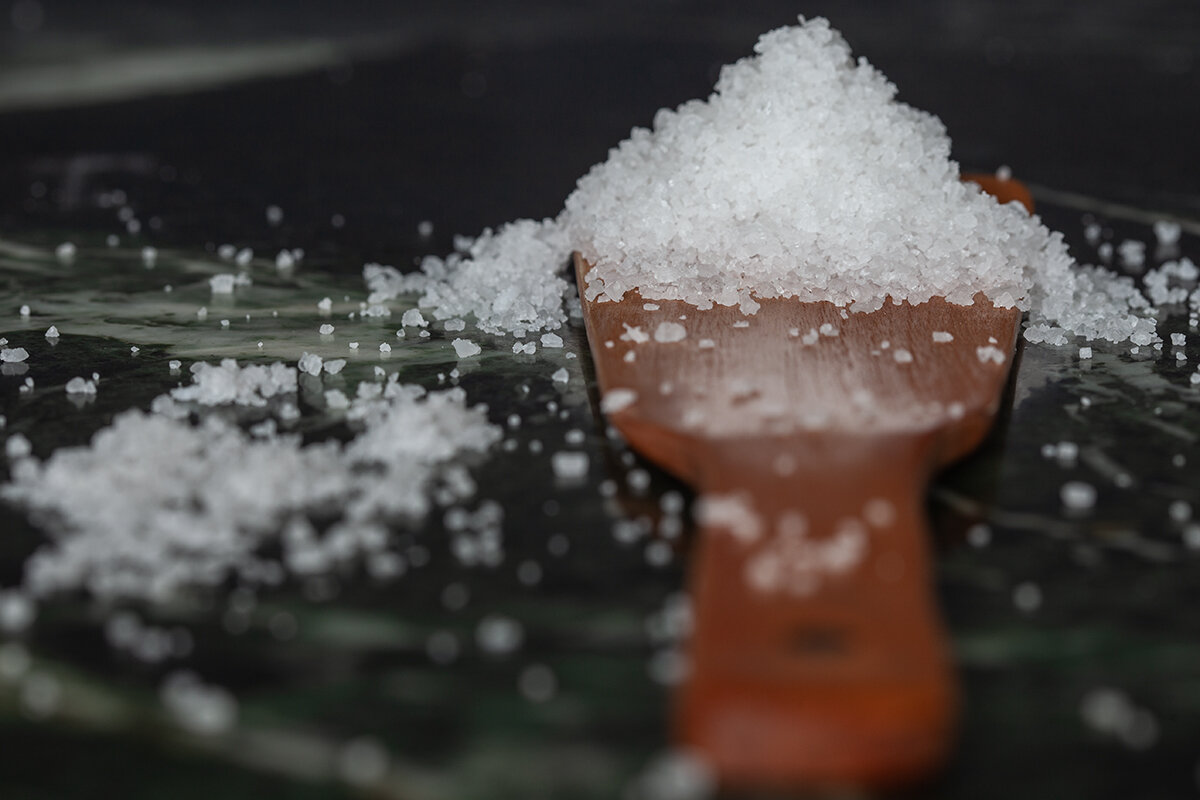HOW MUCH DO YOU REALLY KNOW ABOUT SALT?
A study published in the New England Journal of Medicine, reported that excessive table salt consumption accounts for more than 1.6 million deaths every year due to cardiovascular complications. While excessive natural sea salt consumption will definitely have negative impacts on our health as well, it is not as harmful as table salt, if we use it with moderation. With table salt, even moderate consumption poses significant risks to our bodies.
Now that I have your attention, let’s move on.
Table Salt Vs. Sea Salt
For decades, scientists have known that table salt can have a very negative effect on human health. Since table salt industries add dehumidifiers to their formula through extensive processing, it loses its ability to mix with the fluids of the human body, preventing basic chemical and metabolic processes. Excessive salt consumption, either table salt or natural salt, can lead to serious health problems such as heart attacks, cardiovascular diseases, increased blood pressure and blood volume, gallstones, kidney problems, fluid retention (swelling and cellulite), tissue hyperaemia, atherosclerosis, strokes and it even appears to trigger Alzheimer's disease.
Most of us consume too much table salt, instead of natural sea salt. A lot more than we should, either by adding it to our food, or by eating foods that contain a lot of salt. In fact, several products of well-known companies are loaded with salt and the more famous the manufacturing company is, the higher the salt levels of its products are. Some of the most salted processed products are bread, meat products, cold cuts, cereal, cheese, processed butter, spreads, pre-cooked and canned meals, soups, pizzas and potato chips.
According to the American Heart Association, the recommended daily salt intake should not exceed one teaspoon, specifically 2.3 grams, and should decrease to half a teaspoon for those who have hypertension problems.
Natural sea salt, on the other hand, contains all of its elements, trace minerals and less sodium. Since its flakes are larger and each flake contains less sodium, there’s not even need to use much of it in our foods. By adding natural sea salt in our food, we help our nervous and cardiovascular system and we stabilize our blood and sugar levels, as well as electrolytes, without the side effects of table salt.
Table Salt is Processed & Sea Salt is Natural
The common “table salt” we all know, is mined from salt deposits and is refined. In simple words, compared to natural sea salt, this means table salt is heavily processed in order to give it a fine texture, easier to use in culinary. Just like plain, refined sugar or refined flour. It has been rubbed to reach the desirable grain size, enriched with sodium, filtered, bleached (!!) and “baked”. Furthermore, the various chemicals added to keep it from absorbing water and the anti-caking agents that are added to prevent clumping, end up suspending one of salt’s main functions: to regulate hydration in our bodies.
So, is table salt not natural? Absolutely not! Due to the chemical treatment salt is undergoing, it is stripped of its naturally occurring minerals and turned into a toxic substance. Only 2 out of its 98 elements and trace minerals are left. These are sodium and chloride. It is only a poor copy of the natural product, which is no other than natural sea salt.
Natural sea salt is not processed but there are cases it undergoes slight processing to remove impurities like seaweed and rocks. Each flake is picked and inspected individually and this process is minimal compared to industrial table salt. Since the crystals are collected from naturally occurring or artificial salt pans, through the evaporation of seawater, with minimal or none processing at all, natural sea salt is able to retain all of its minerals, such as magnesium, potassium and calcium. Natural sea salt also contains less iodine, which is added to table salt to prevent thyroid related malfunctions, sometimes with adverse side effects on certain groups of people. Prolonged use or high doses of iodine might lead to conditions such as hyperthyroidism and even make them worse.
Something for the ladies: One of the main reasons for which we have cellulite, is common, refined, table salt! It cannot be dissolved and absorbed by the body. As a result, it accumulates in the form of cellulite!
We cannot live without salt. It is an irreplaceable source of nutrients that our bodies need to grow and survive. The question here is, what kind of salt? Always opt for natural sea salt instead of table salt, and always in moderation as too much of any salt will only have harmful effects! The truth is, it’s unavoidable with processed foods. But we can do better for our health and either cut out processed foods completely and only use natural sea salt or at least reduce our daily salt intake. Of course, there are hundreds of options marketed out there. “Organic” products, published as “natural”, “unrefined” or “mined from the earth”, salt substitutes, and the list seems to have no ending.
So why do we keep buying table salt? It has been blamed for so many health problems.
Please visit our shop and see the difference between table salt and natural sea salt for yourself!




